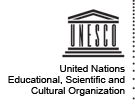Making Rwandese educational portals accessible to people with disabilities
UNESCO, in cooperation with the University of Rwanda and DAISY Consortium organized a training workshop from 26 to 29 May 2015 on inclusive publishing and web accessibility. Representatives of educational institutions and the National Council of People Living with Disabilities attended the training, which focused on accessibility problems identified in educational portals in Rwanda.
UNESCO conducted a web accessibility audit of educational portals from the Ministry of Education, the Rwanda Education Board and the Workforce Development Agency. As a result a four-day training workshop was organized, focusing on common web accessibility barriers, guidelines, best practices and coding of snippets for retrofitting of inaccessible websites.
The workshop provided hands-on training on inclusive publishing and the production of digital content that conforms to international standards and is accessible to everyone including people with disabilities. A participant from the College of Education, Kigali, said that in the training he learnt how to prepare materials for people living with disabilities (texts, pictures and sound records).
This training activity is part of a three-fold approach to develop accessible ICTs in Rwanda. The first part focuses on the policy environment of ICTs for people living with disabilities in Rwanda. A policy brief on ICTs and Disabilities is being developed to inform ICT and education policy interventions. The second part focuses on capacity development in the field of inclusive technologies. And finally, the third part will focus on supporting the establishment of a national resource centre that would provide information relevant to people living with disabilities, as well as training facilities, based on the UNESCO Inclusive Learning Lab (i2Lab). This is a UNESCO-led approach to building a diverse, dynamic and inclusive learning environment for persons with disabilities.
The ICT sector in Rwanda is singled out as a priority that can change dramatically the entire society. ICT can contribute towards creating employment and generating incomes, including disadvantaged communities, particularly among women, youth and persons with disabilities. However, if disadvantaged communities do not have access to technologies because of accessibility barriers, the impact will be limited. UNESCO is, therefore, undertaking several initiatives aimed at making ICT accessible and introducing significant improvements in the lives of these persons, allowing them to enhance their social and economic integration in communities by enlarging the scope of activities available to them. As one of the workshop participants remarked, he had never thought about disability in his day-to-day activities, but, from now on, he would have it in his mind when developing ICT solutions.
The UNESCO activities are carried out within the framework of the Rwanda Joint Flagship on Youth and Women Employment, supporting formal training institutions to provide digital educational materials to young people living with disabilities.
<- Back to: News articles

